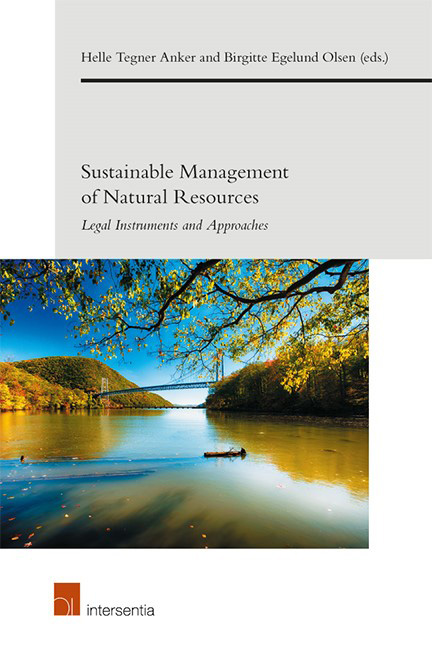Book contents
- Frontmatter
- Contents
- PART I INTRODUCTION
- PART II SUSTAINABILITY IN EU AND INTERNATIONAL LAW
- PART III SUSTAINABLE MANAGEMENT OF WASTE
- PART IV ENVIRONMENTAL AND CLIMATE LITIGATION
- PART V ECOSYSTEM APPROACHES AND ADAPTIVE MANAGEMENT
- PART VI SUSTAINABLE RESOURCE MANAGEMENT: SPECIFIC ISSUES 193
- Chapter 12 Significance of Air Quality Plans: the Czech Experience
- Chapter 13 Being Reasonable: How Does Rationality Affect Participatory Environmental Governance?
- Chapter 14 Indigenous Peoples’ Right to Natural Resources: Reflections from the Arctic
Chapter 12 - Significance of Air Quality Plans: the Czech Experience
from PART VI - SUSTAINABLE RESOURCE MANAGEMENT: SPECIFIC ISSUES 193
Published online by Cambridge University Press: 31 January 2019
- Frontmatter
- Contents
- PART I INTRODUCTION
- PART II SUSTAINABILITY IN EU AND INTERNATIONAL LAW
- PART III SUSTAINABLE MANAGEMENT OF WASTE
- PART IV ENVIRONMENTAL AND CLIMATE LITIGATION
- PART V ECOSYSTEM APPROACHES AND ADAPTIVE MANAGEMENT
- PART VI SUSTAINABLE RESOURCE MANAGEMENT: SPECIFIC ISSUES 193
- Chapter 12 Significance of Air Quality Plans: the Czech Experience
- Chapter 13 Being Reasonable: How Does Rationality Affect Participatory Environmental Governance?
- Chapter 14 Indigenous Peoples’ Right to Natural Resources: Reflections from the Arctic
Summary
ABSTRACT
Air quality plans (AQPs) have become a significant part of the legal regulation in the field of air protection at the EU as well as at national law levels. This contribution focuses on problems concerning the interpretation and implementation of Article 23(1) of the EU Air Quality Directive (AQD). With respect to this, a non-compliance with the directive may arise from the failure to establish AQPs for areas with excessive air pollution, from the failure to implement established AQPs or from the adoption of AQPs containing measures, which fail to be sufficiently effective to reduce air pollution. The question is, if the mere non-compliance with air quality standards should be automatically conceived as the failure to adopt adequate AQPs as required by Article 23(1), namely without proper analysis and assessment of proposed measures. The author attempts to show this approach is incorrect since measures proposed in AQPs must be supported by other legal instruments and properly enforced at the national level to create effective regulation capable of complying with the basic requirement, that is to achieve a good quality of ambient air. The author analyses the role of AQPs in the Czech national legislation and concludes that AQPs are just programme documents which the national law must interconnect with other legal tools. The role of AQPs is no more important than the role of other regulatory instruments, which must work efficiently as a coherent system.
INTRODUCTION
Since the 1970s, EU environmental law and policy is directed at combatting air pollution. The adoption of the Thematic Strategy on Air Pollution in 2005 under the Sixth Environmental Action Programme further intensified the EU´s effort to improve air quality. Various regulatory approaches and legal measures were employed to meet the objectives. Programme documents, e.g. plans and programmes, have become a significant regulatory tool of EU environmental law. EU Member States are obligated to introduce different kinds of programmes and plans to national laws by various sources of EU law. In the field of air protection, there are three different kinds of programme documents: emission reduction programmes, air quality plans and short-term action plans.
- Type
- Chapter
- Information
- Sustainable Management of Natural ResourcesLegal Instruments and Approaches, pp. 195 - 210Publisher: IntersentiaPrint publication year: 2018
- 1
- Cited by

